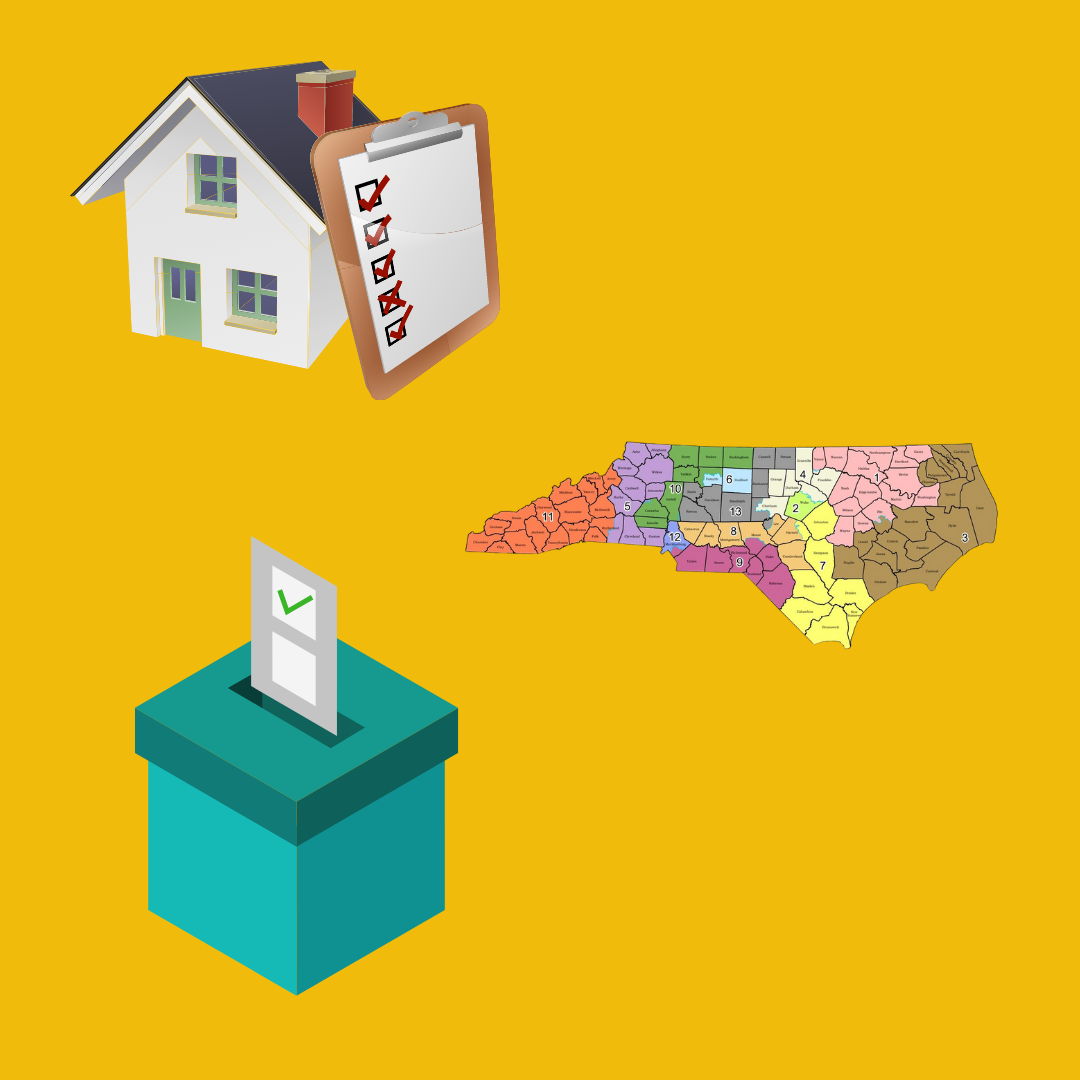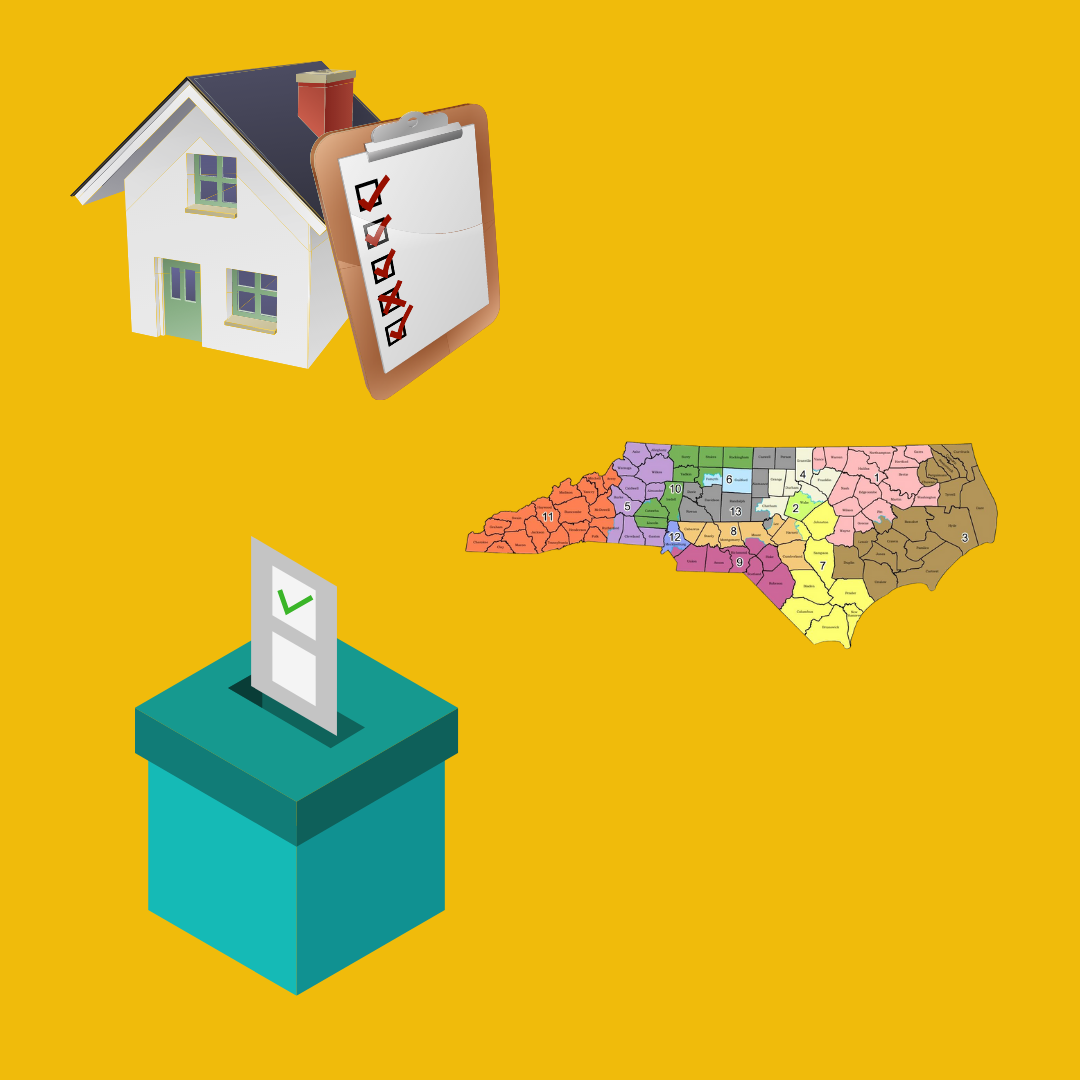
 |
 |
 |
| Recovery & Resiliency | Civic Engagement and Representation | Advocacy |
RECOVERY & RESILIENCY

Health Equity | Digital Equity and Inclusion
When people and communities experience a crisis together, they often are not impacted in the same way. BIPOC communities usually fare worse in crises, like the COVID-19 pandemic, due to systemic health, economic and social inequities exacerbated by disasters.
NC Counts Coalition helps communities recover from unforeseen disasters by working with government and community partners to understand the true needs of our communities to develop appropriate responses to crisis.
We are growing initiatives that connect public sector needs to private sector capacities and are proud of our growing role as a critical strategic partner to decision-makers at all levels of government.
Recovery and Resiliency Initatives:
Health Equity
Healthier Together Initiative
Healthier Together is a public-private partnership between NC Counts Coalition and NC Department of Health and Human Services (NC DHHS) to advance health equity.
Behavioral and Mental Health of Youth Project
The COVID-19 pandemic has exacerbated the growing behavioral health crisis among BIPOC and LGBTQ+ children and adolescents.
-
In 2023, NC Counts Coalition created a pilot assessment funded under the Healthier Together public-private partnerhip with NC DHHS to guide the expansion of community-based organizations' capabilities in addressing the behavioral health needs of BIPOC and LGBTQ+ children/students in grades K-12 affected by COVID-19. The assessment included 55 listening sessions hosted by 31 coalition member organizations throughout the state over a 3-week period that engaged almost 3,000 community members. It also included an internal assessment of 80 coalition member organizations to better understand and evaluate the capacity of those organizations to engage in behavioral health outreach.
-
100% of NC Counts Coalition staff is certified as Youth Mental Health First Aid Trainers by the National Council for Mental WellBeing
-
NC Counts provided Youth Mental Health First Aid training to 129 individuals from NC Counts member organizations
-
NC Counts funded 66 CBOs that are members of the Coalition who received training to implement an event/outreach in their community, sharing information and resources from Youth Mental Health First Aid training
-
Each grantee received a $5,000 grant.
-
The grant covered their organization's time and travel to engage in Youth Mental Health First Aid training, and costs to implement an outreach initiative
-
-
HealthLit4Wake
HealthLit4Wake is a partnership between Wake County Human Services (WCHS) and NC Counts to advance health literacy to enhance equitable community responses to COVID-19 in 35 census tracts in urban areas throughout Wake County, NC. In line with the Office of Disease Prevention and Health Promotion’s (ODPHP) Healthy People 2030, WCHS and NC Counts are leading a coalition of diverse organizations, government agencies and individuals to: 1) advance health literacy among racial and ethnic minorities, and other socially vulnerable groups most impacted by COVID-19, 2) expand complimentary services to address social determinants of health, and 3) utilize data for decision making.
Digital Equity and Inclusion
Connect Me NC
In an increasingly digital world, access to technology and digital skills are critical for individuals and communities to thrive. NC Counts Coalition recognizes the importance of digital equity in ensuring that all North Carolinians can fully participate in and benefit from the digital age. "Connect Me NC" is a statewide campaign that aims to bridge North Carolina's digital divide.
CIVIC ENGAGEMENT & REPRESENTATION

Civic engagement is the foundation for building healthy, equitable and just communities. Our communities and our democracy become more just and equitable when people get involved and share in power. Civic engagement is a vital tactic for power building that leads to long-term systemic change for BIPOC communities, LGBTQ+, low wealth, immigrant, and other communities.
NC Counts Coalition supports our community partners in power building by providing nonpartisan civic engagement education and resources to:
- Educate the communities we serve on the democratic process, and the intersection of issues they care about (such as education and healthcare) with the democratic process.
- Engage and Empower community members to take action and be seen and heard in our democracy.
Civic Engagement Initiatives:
Census 2030
Decennial Census planning begins as early as the day after the end of a Decennial Census operation. NC Counts Coalition convenes a 2030 NC census work group and has developed a 2030 census plan that outlines NC Counts Coalition’s broad categories of work to ensure a complete, equitable 2030 Census Count for the state of North Carolina.
Redistricting
Census 2020 results show North Carolina is the 11th fastest growing state in the country, growth that is driven largely by communities of color and has resulted in the State receiving an additional 14th Congressional seat. These factors, along with the State’s long and recent history of racial and partisan gerrymandering that has adversely impacted communities of color, demonstrates the ongoing need for consistent education, engagement, and advocacy around the redistricting process in North Carolina.
NC Counts Coalition serves as a hub for redistricting that brings organizations together for alignment, collaboration, updates, best practices, and resources to support community outreach. NC We are leveraging and building on the broad community partnerships developed to support 2020 Census outreach to construct a broad coalition of leaders, activists and grassroots organizations armed with information and skills needed to advocate for fair maps.
Rank Choice Voting
The mission of NC Counts is to advance systemic solutions that address systemic issues. Ranked Choice Voting (RCV) is a systemic solution that directly addresses the issue of true democratic representation. It is a method by which we could ensure our communities are electing candidates of choice. However, this solution is understandably unknown, strange and alien because it is contrary to the “winner take all” system that we are most familiar with.
NC Counts Coalition has received a grant from the More Equitable Democracy Fund to explore electoral reform through proportional representation in North Carolina.
Advocacy

Local, regional and statewide policies should have a positive impact on people’s health and general well-being. One of the key tactics to addressing and undoing inequities and building power in communities is advocacy and policy change. NC Counts Coalition uses its voice to support and advance issues most closely related to our organization’s mission and values. We advocate to improve policies, programs, and services that impact communities facing systemic barriers.